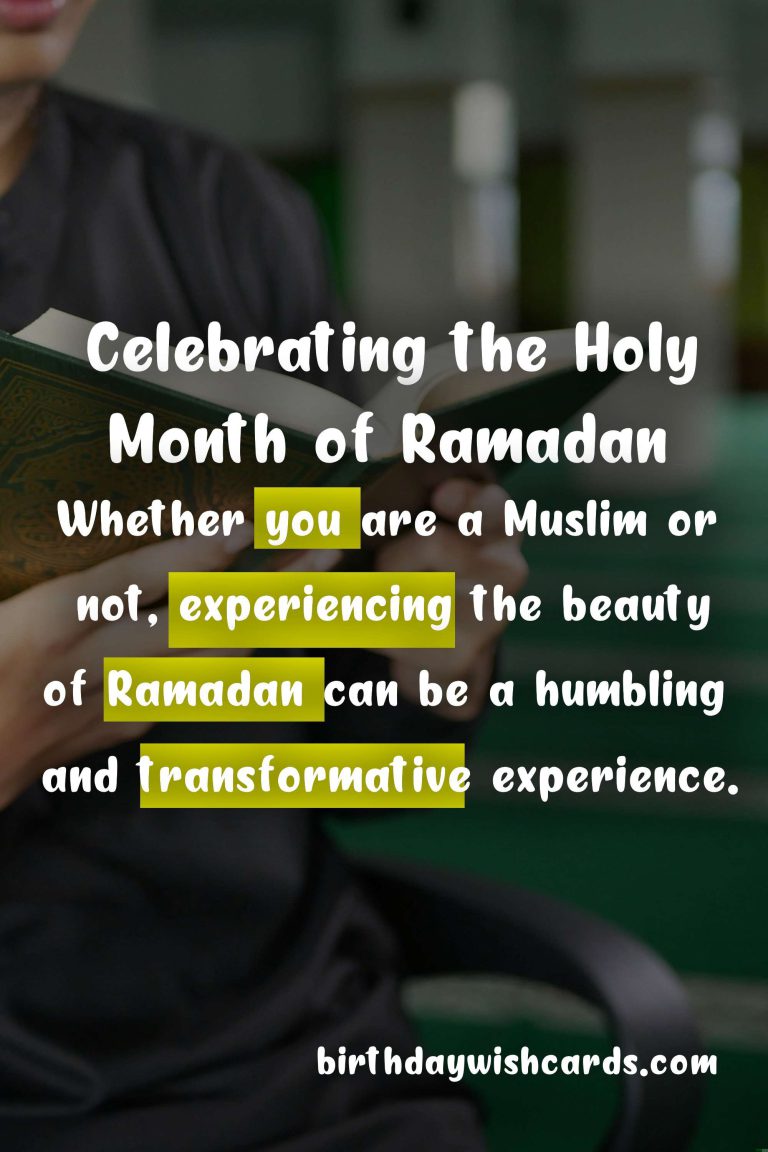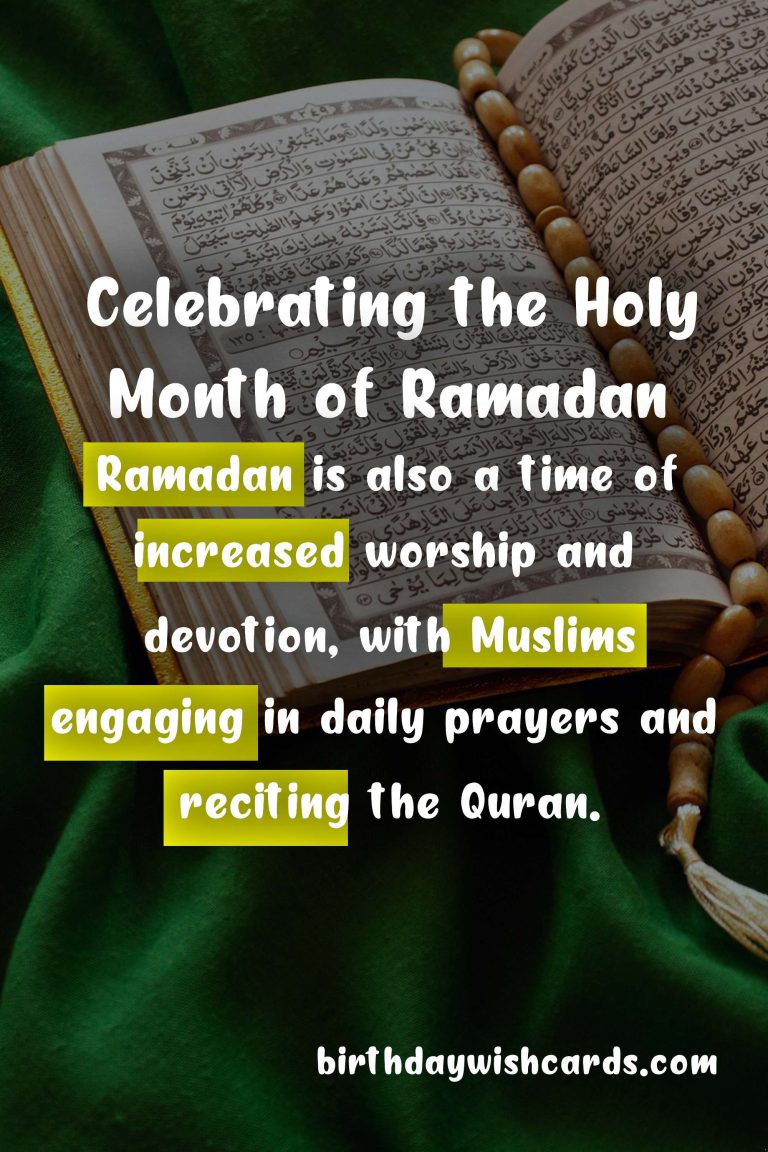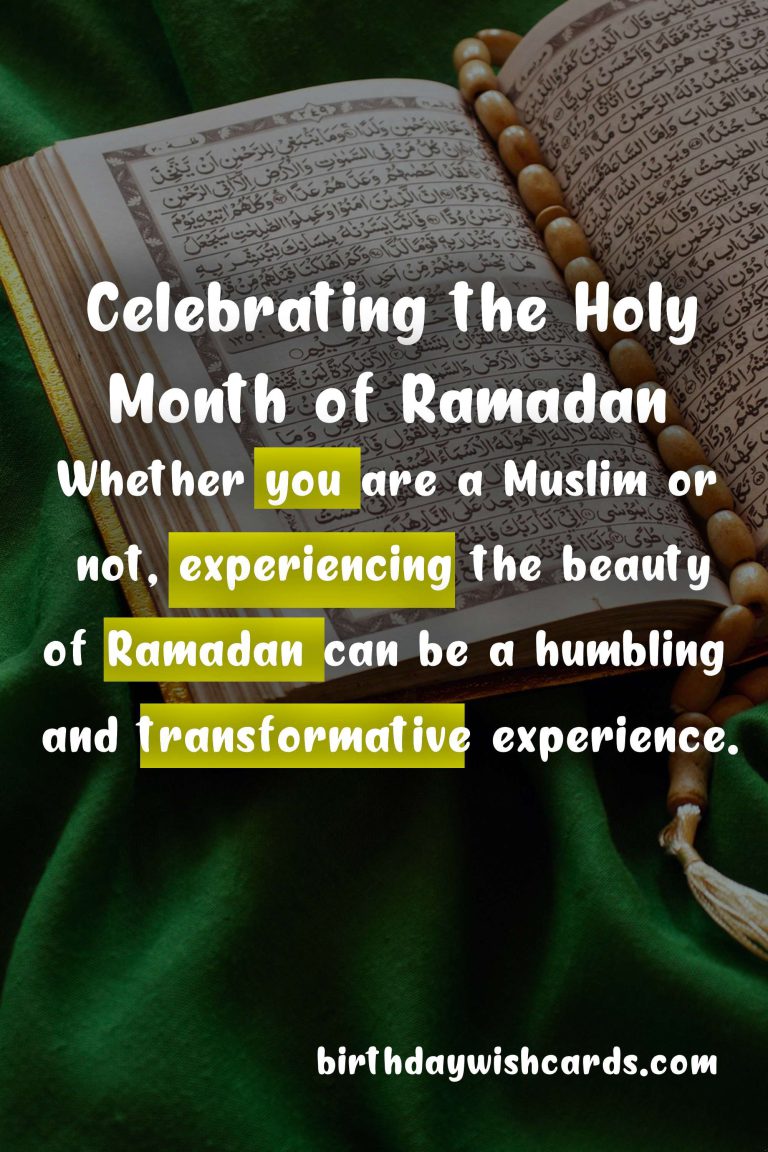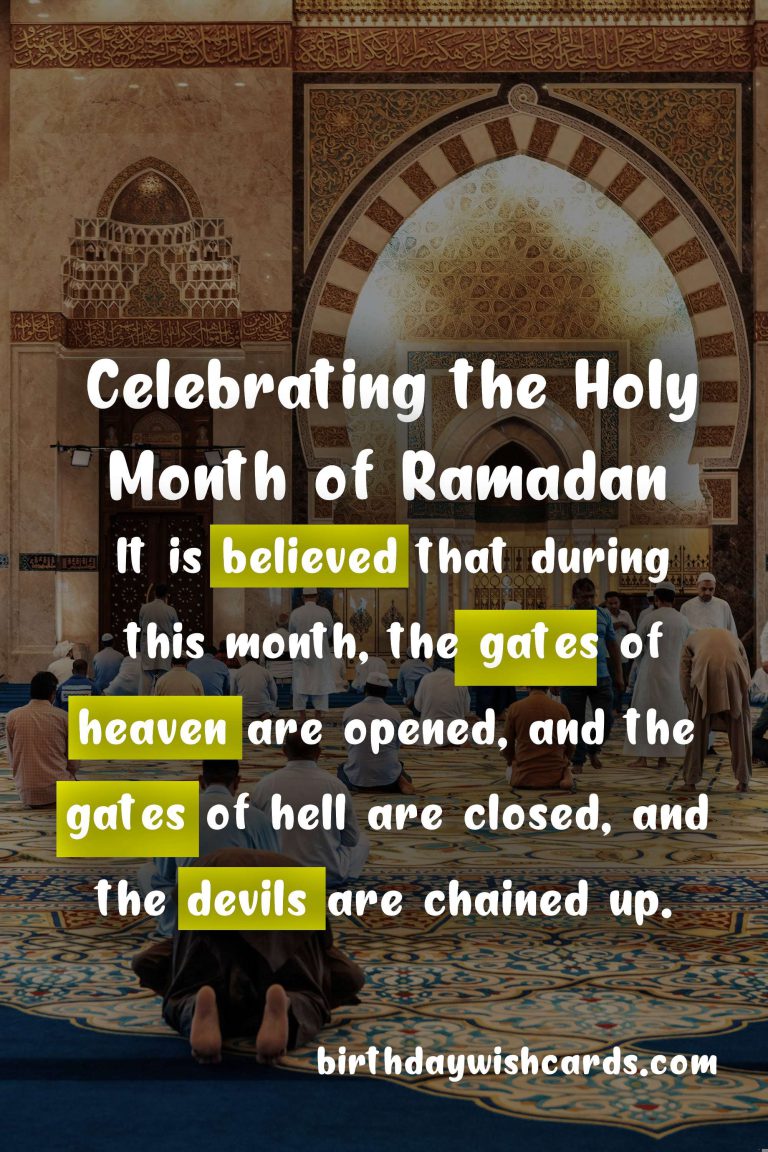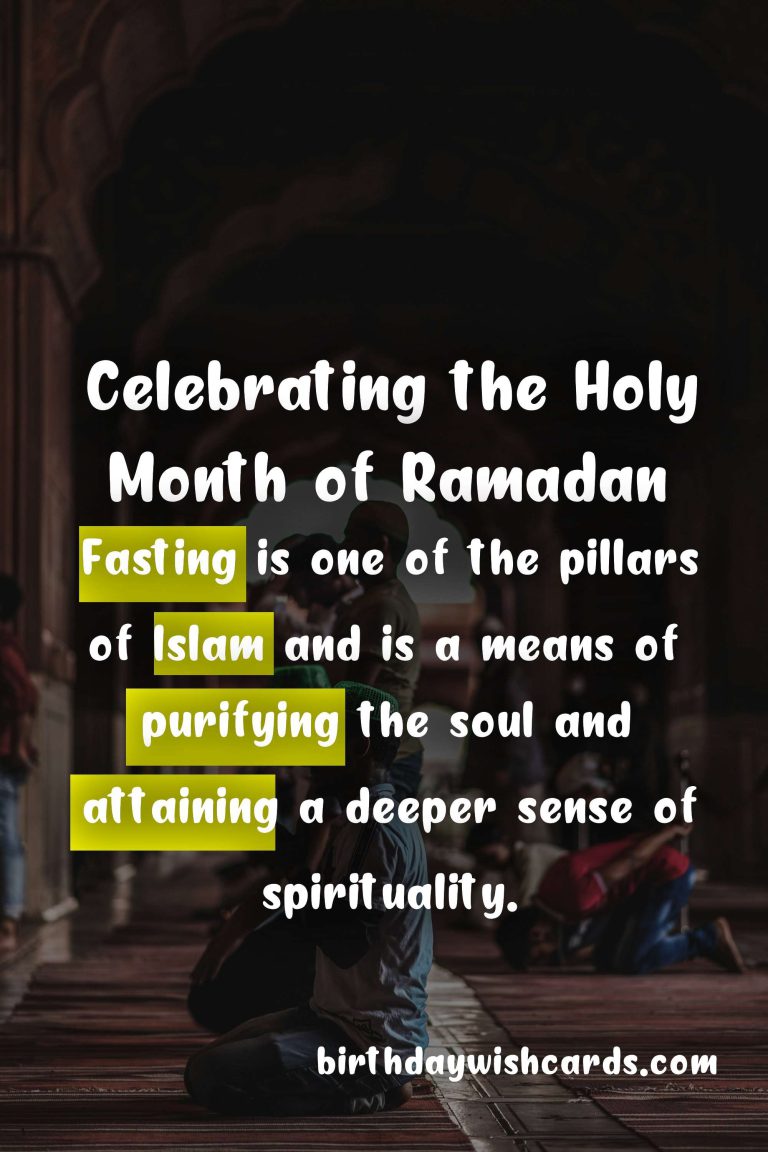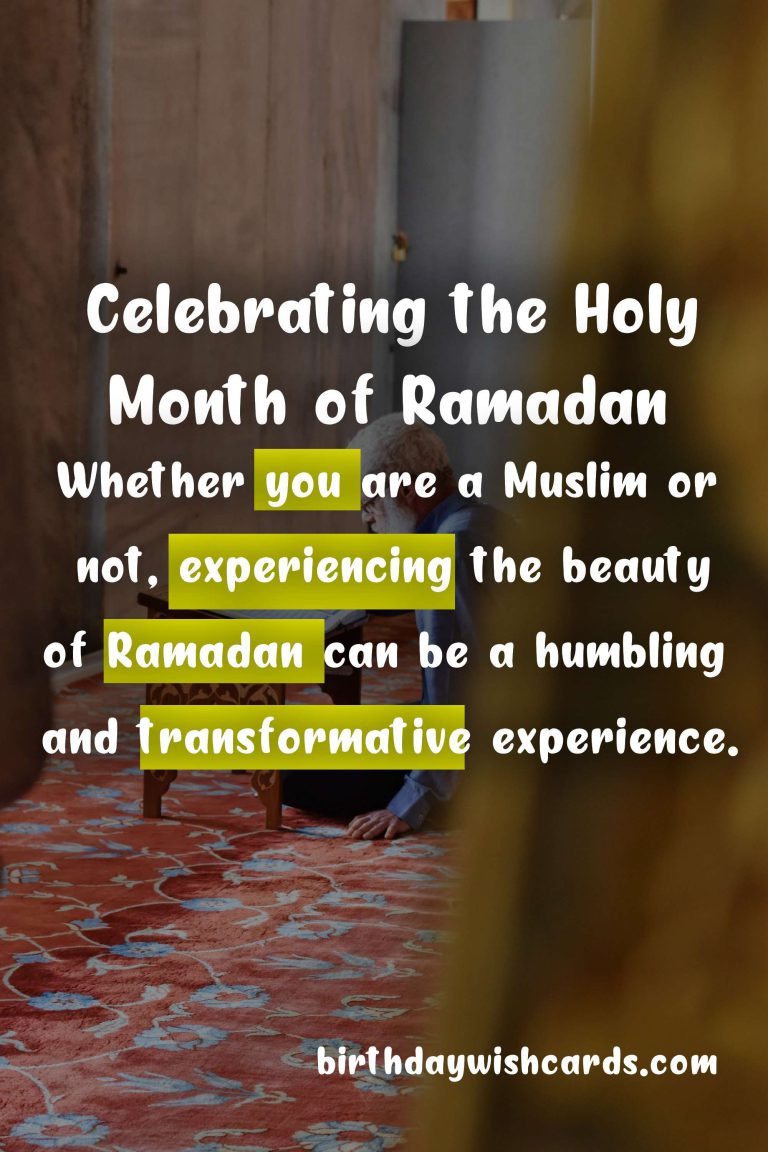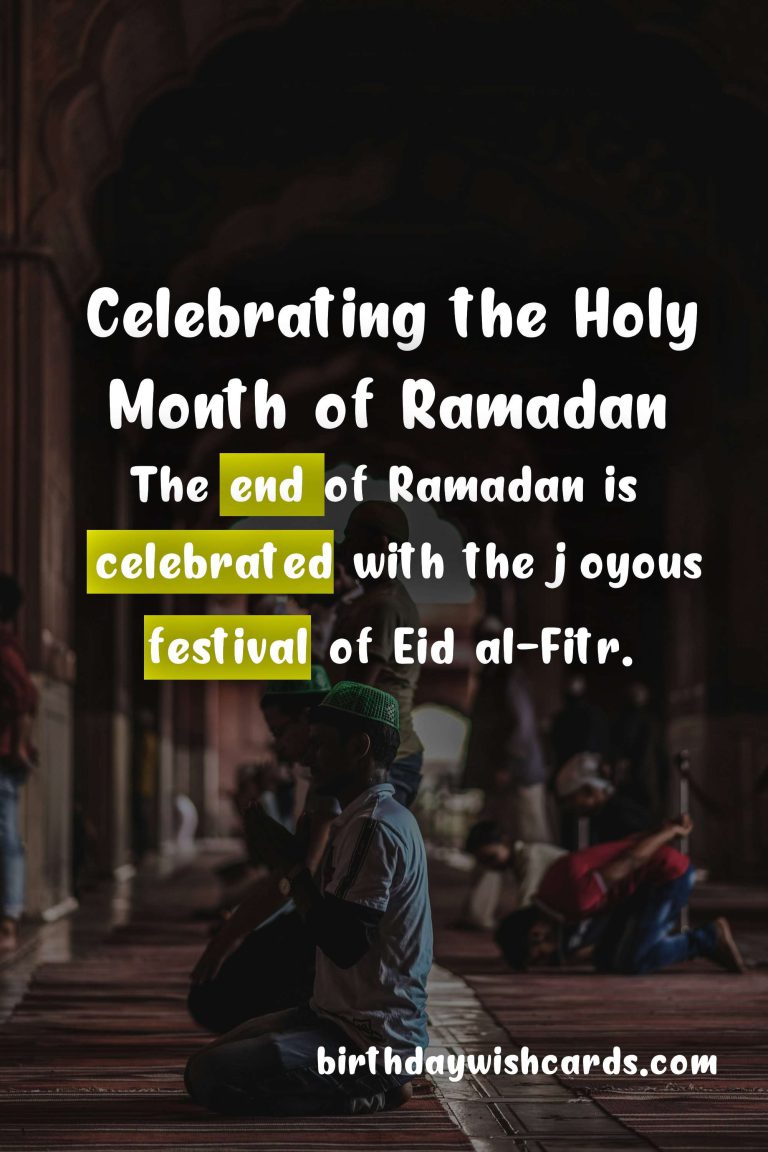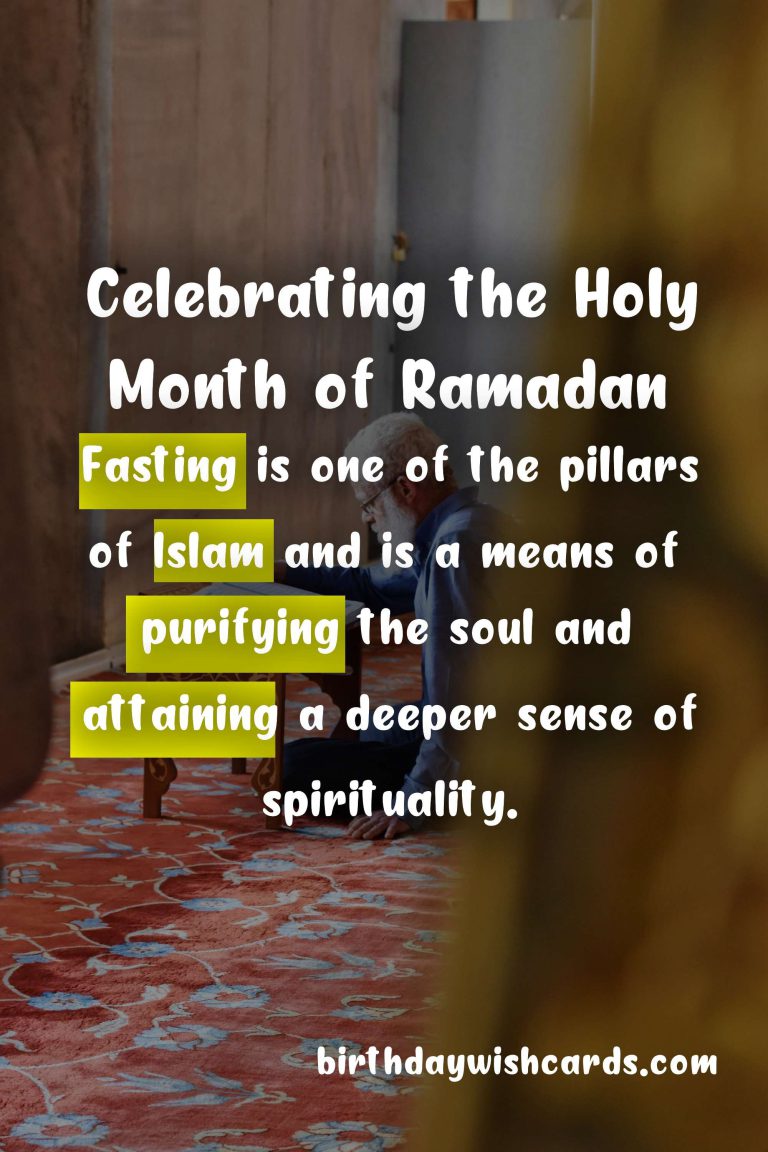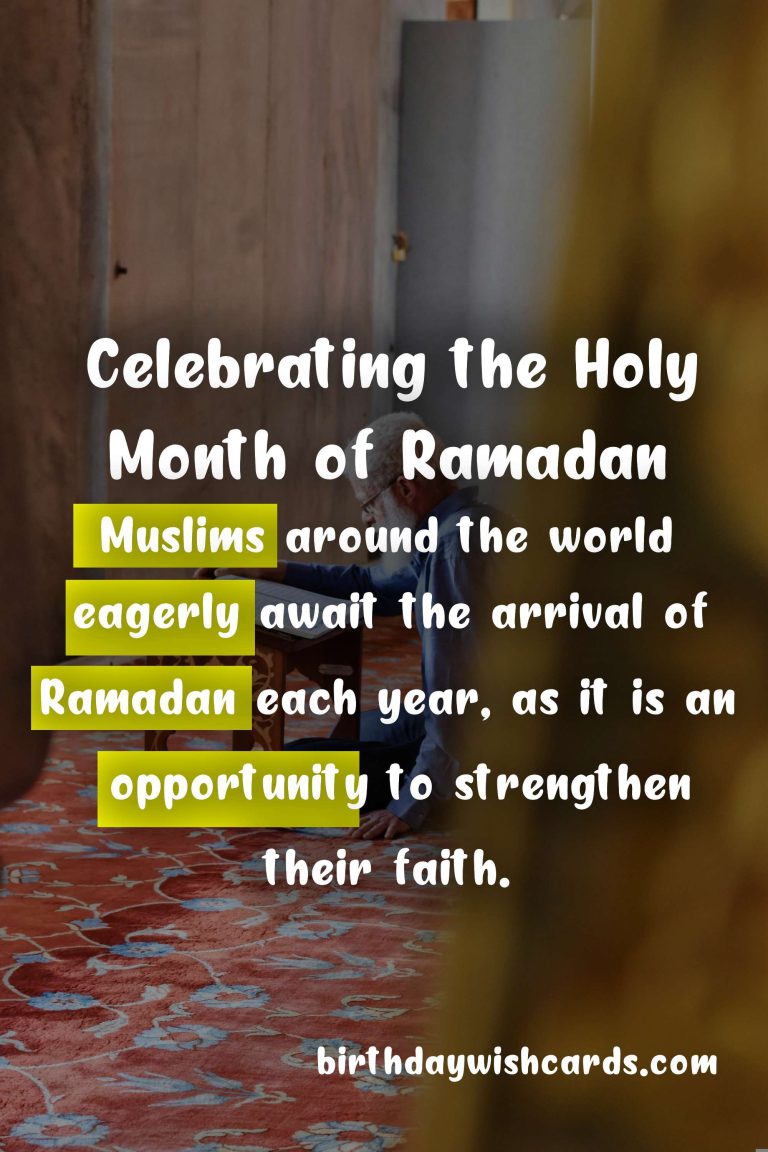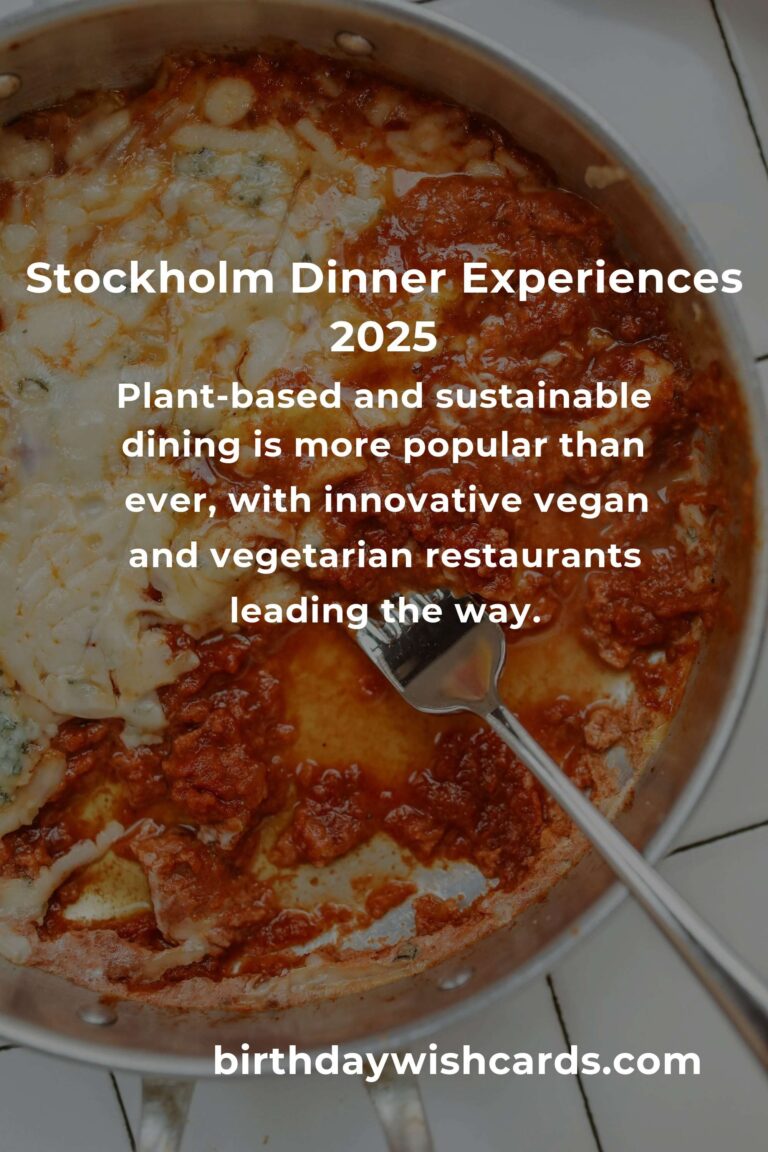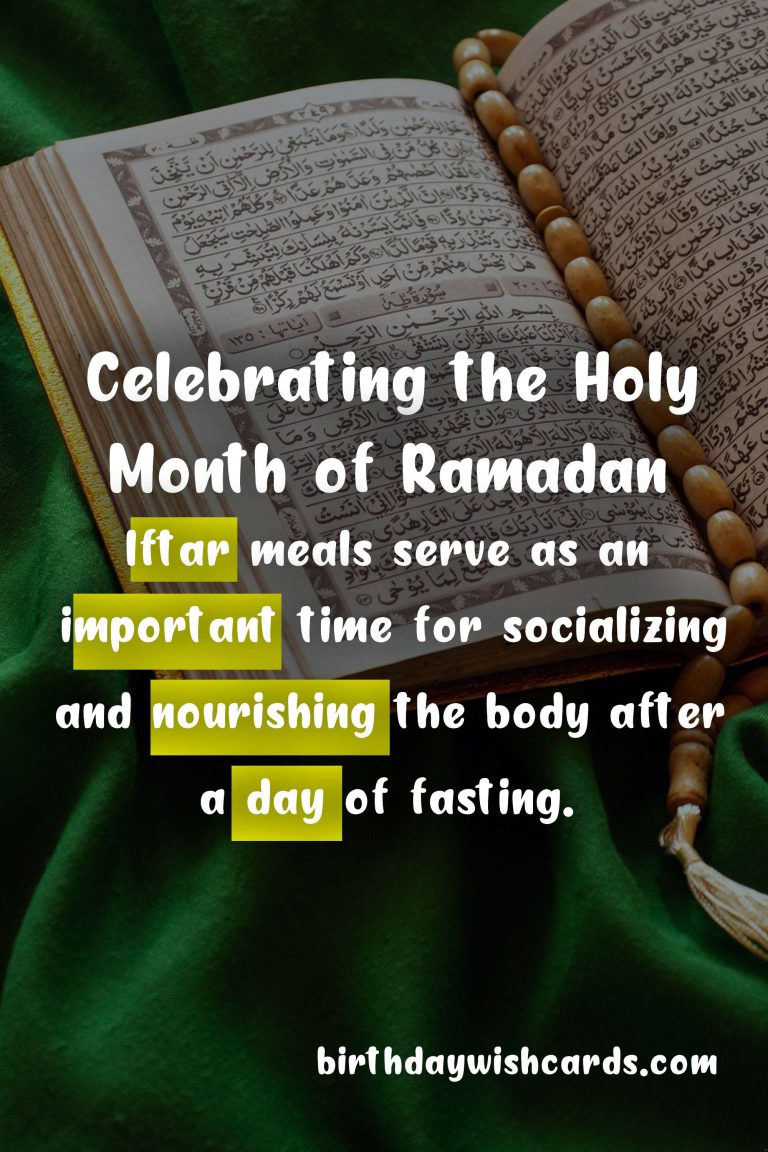
The month of Ramadan is the holiest and most anticipated month in the Islamic calendar. It is a time of reflection, prayer, charity, and most importantly, fasting for millions of Muslims around the world. It is an entire month of self-discipline, spiritual renewal, and strengthening one’s relationship with God.
But what exactly is Ramadan and why is it so important? Read on to find out more about this blessed month.
The Background of Ramadan
Ramadan is the 9th month of the Islamic calendar and is considered the month of mercy. It was during this month that the first verses of the Holy Quran were revealed to the Prophet Muhammad, and it is believed to be the most blessed month of the year.
The word Ramadan comes from the Arabic word “ramada,” which means “to be hot or burnt.” It is a reference to the hunger and thirst Muslims experience while fasting during this month. However, this is not a negative connotation as Muslims view this as a means of purifying the soul and strengthening their relationship with Allah.
Zakat during Ramadan
In addition to fasting, Ramadan is also a time for giving back to the community. In fact, the giving of zakat or alms is one of the five pillars of Islam. During this month, Muslims are encouraged to donate a percentage of their wealth to those in need. It is a means of purifying one’s wealth and showing gratitude to God.
The Significance of Fasting in Ramadan
Fasting is the main religious duty during Ramadan. It is an act of deep spiritual reflection and self-discipline. From sunrise to sunset, Muslims abstain from food, drink, smoking, and engaging in sexual activities. By refraining from these earthly desires, Muslims are able to redirect their focus towards God and strengthen their faith.
During the fast, it is important to remember to practice moderation and not indulge in large meals during the evening. The purpose of fasting is not only to abstain from food and drink but also to control one’s desires and build self-discipline.
Nightly Prayers and Taraweeh
In addition to fasting, Ramadan is also a time for increased worship and prayer. Muslims are encouraged to read the Quran and perform voluntary prayers known as Taraweeh. These prayers are offered every night throughout the month and can be a means of attaining divine forgiveness and blessings.
The last ten days of Ramadan hold special significance as it is believed that is when the Prophet Muhammad received the first revelations of the Quran. It is during this time that many Muslims retreat into seclusion to engage in deeper spiritual reflection and dedicate themselves to praying and reciting the Quran.
Breaking the Fast with Iftar
The daily fast is broken at sunset with the Iftar meal. Muslims are encouraged to break their fast with a date and a glass of water, in remembrance of the Prophet Muhammad’s tradition. Following this, a full meal is prepared, and families and friends come together to celebrate the end of the fast. Iftar meals are a significant part of Ramadan, serving as a time for socializing and nourishing the body after a day of fasting.
The End of Ramadan: Eid al-Fitr
The end of the holy month of Ramadan is marked by the celebration of Eid al-Fitr, which translates to “festival of breaking the fast.” This joyous occasion is a time for families and friends to come together, dress in their best clothes, and indulge in a feast. It is also a time for giving gifts and showing gratitude to God for granting the strength to complete the month of fasting.
Experience the Beauty of Ramadan
For Muslims, Ramadan is not just a month of fasting but also an important time for spiritual growth, reflection, and strengthening one’s relationship with God. It is a time to practice self-discipline and give back to the community. Additionally, it serves as a reminder to be grateful for the blessings in life. So, whether you are a Muslim or not, take this opportunity to experience the beauty and significance of the holy month of Ramadan.
Muslims around the world eagerly await the arrival of Ramadan each year, as it is an opportunity to strengthen their faith. It is believed that during this month, the gates of heaven are opened, and the gates of hell are closed, and the devils are chained up. The first revelation of the Quran is believed to have taken place during the month of Ramadan. Fasting is one of the pillars of Islam and is a means of purifying the soul and attaining a deeper sense of spirituality. Ramadan is also a time of increased worship and devotion, with Muslims engaging in daily prayers and reciting the Quran. Charity is strongly encouraged during Ramadan, and Muslims are encouraged to donate a percentage of their wealth to those in need. Breaking the daily fast is marked by the Iftar meal, where friends and family come together to celebrate the end of the fast. The end of Ramadan is celebrated with the joyous festival of Eid al-Fitr. Iftar meals serve as an important time for socializing and nourishing the body after a day of fasting. Ramadan serves as an opportunity to reflect on the blessings in life and to practice gratefulness for all that is given. Whether you are a Muslim or not, experiencing the beauty of Ramadan can be a humbling and transformative experience. 
